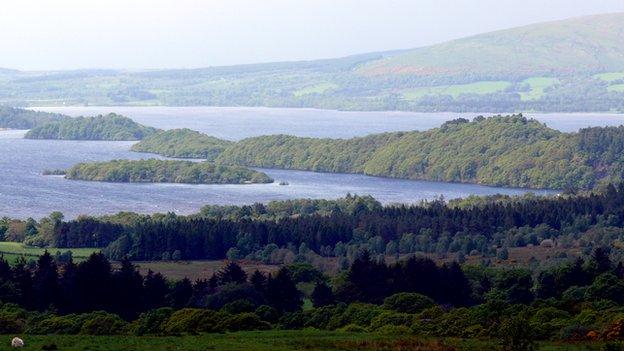Concern over Loch Lomond and Trossachs National Park camping plan
- Published
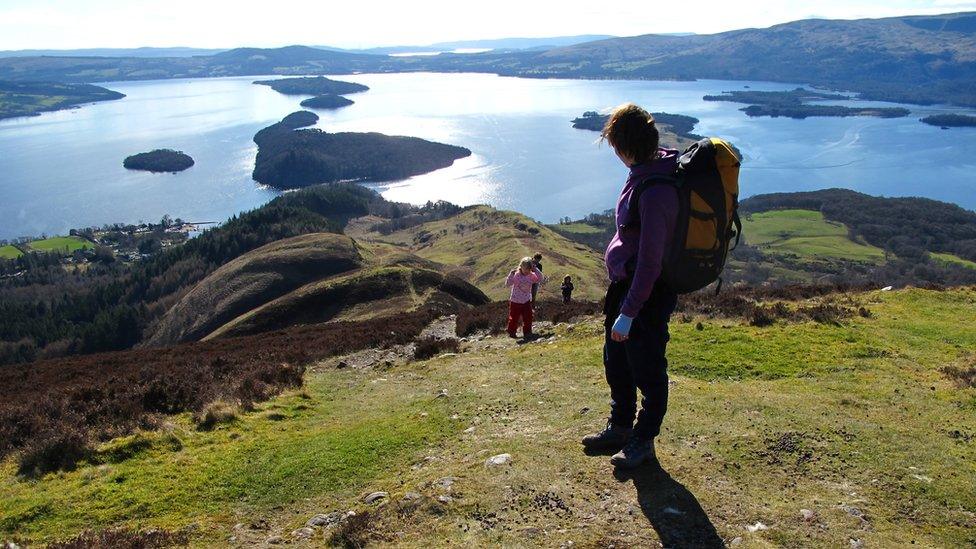
There will be new camping management zones on the east and west shores of Loch Lomond as well as other lochs in the park
Campaigners have criticised the Loch Lomond and Trossachs National Park's camping strategy ahead of new by-laws that will be enforced next year.
Ramblers Scotland said the strategy may fail to provide enough camping pitches to cope with demand.
From 2017, seasonal by-laws will ban camping outside formal sites or without a permit in specific areas of the park.
The national park said it was introducing of 300 low-cost camping places as part of the strategy.
The camping places will be a mix of informal campsites and permit areas. There will also be places for motorhomes to stop off overnight, the park authority said.
It emphasized the 300 camping places related to the number of tent pitches available and not to the number of people who could camp.
The by-laws, which follow a similar legislation introduced to east Lomondside five years' ago, were heavily criticised by some outdoor recreation groups and campaigners, but were approved by the Scottish government in January.
They will be in operation in many lochside areas between March and September from next year.
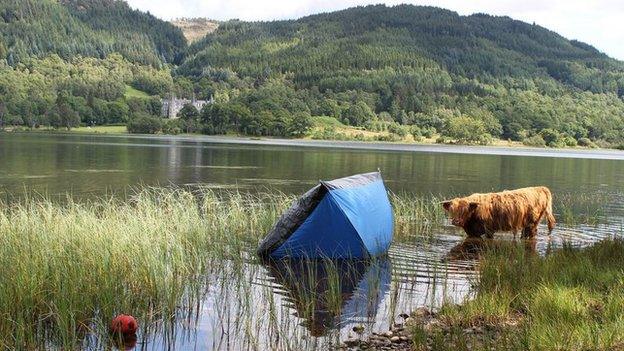
The national park says the by-laws are necessary to protect the environment and prevent anti-social behaviour
The authority maintains that the measures are necessary to protect the environment from anti-social behaviour and they are supported by many residents of the park.
Its Camping Development Strategy, external was approved by board members on Monday.
The strategy includes four "camping management" areas - East Loch Lomond, West Loch Lomond, Trossachs West and Trossachs North - which have been established on the busiest loch shores.
The park said it would invest in new managed campsites and a camping permit zones within these four areas.
But Ramblers Scotland said it was concerned fewer people could end up enjoying the outdoors as not enough camping places were being created.
The organisation's criticism of the strategy focuses on three areas:
Only 34 extra campsite pitches being provided - 26 at Loch Chon and eight at Rowardennan
Many of the 229 new camping permits would be sold where there were no extra facilities like drinking water or toilets being offered in return
No new seasonal campsites in partnership with local landowners to help manage demand at peak times
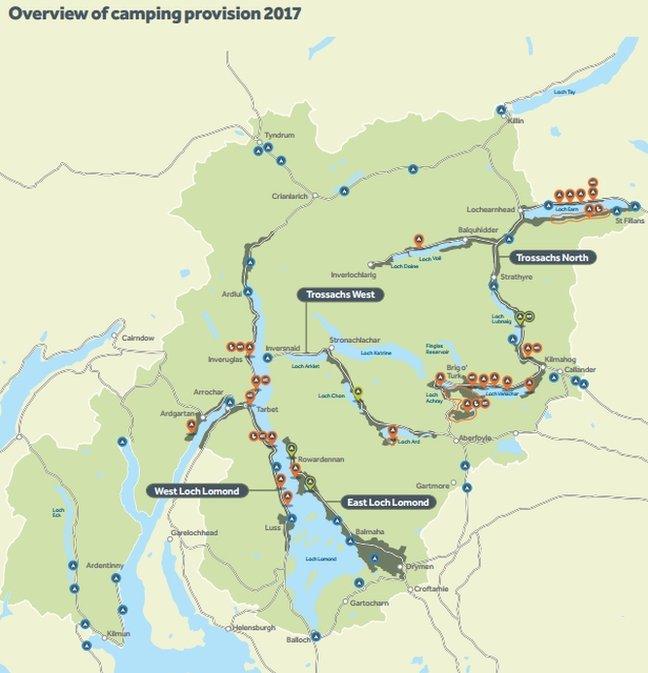
Ramblers Scotland director Brendan Paddy said: "We recognise that the large numbers of visitors causes pressure on individual areas, and we support the authority's plan to provide more camping infrastructure and to better educate people about enjoying the park responsibly.
"However, these plans are disproportionately dependent on an untested permit scheme that will charge people to camp in previously-free areas, in some cases without providing any new toilets, drinking water or bins in return.
"We await more detail about how much these permits will cost, how people will obtain them and how they will be enforced."
Mr Paddy said Ramblers Scotland would continue to work with the park authority to promote the Scottish Outdoor Access Code, but that the organisation believed problems were best handed through "education, investment in low-cost campsites and enforcement of existing laws".
He added: "We will work to ensure that these new by-laws are not renewed when they come up for review in three years' time."
'Fragile' shores
Simon Jones, director of conservation and visitor operations at the national park, said the 300 camping places would be delivered by the 1 March 2017, when the by-laws come into effect, with further investment after that.
He said: "Ramblers Scotland express concerns about the number of permits and pitches available and whether they will 'cope with demand' for camping places on loch shores, and also suggest we are banning camping.
"However, I want to make it absolutely clear that the aim of these measures is to allow camping at a sustainable level, to stop the damage to the environment that is being caused by large numbers of visitors a peak times in the season - which Ramblers Scotland themselves highlight as a problem.
"The approach set out in our Camping Development Strategy will have the dual benefit of protecting the environment of our popular, fragile loch shores, and proving a better experience for everyone, including those who come to camp."
Mr Jones added that although the camping permit system was new in Scotland, the parked hoped it would provide the flexibility to "balance demand with sustainability".
- Published26 January 2016
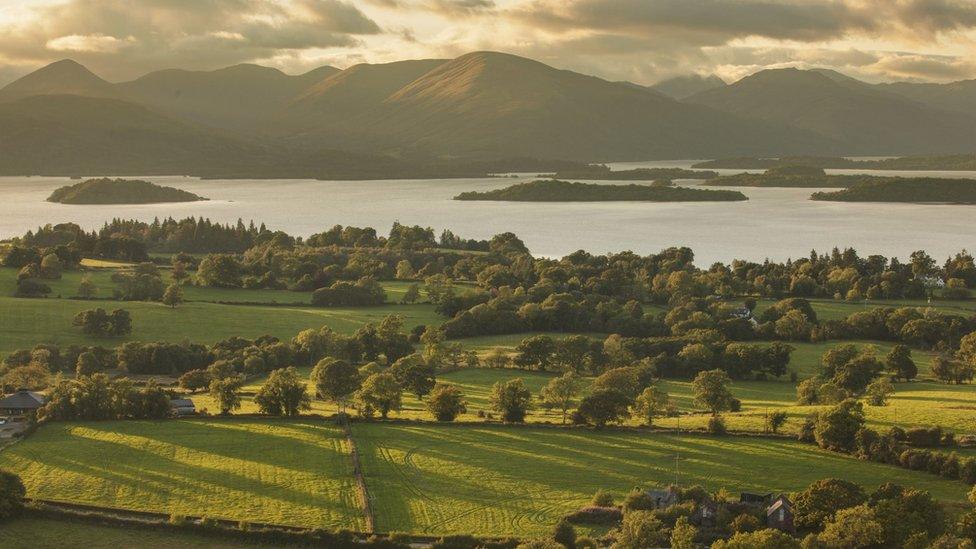
- Published16 December 2015

- Published27 April 2015
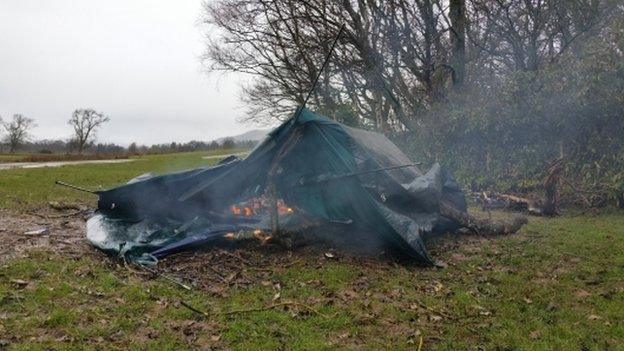
- Published13 January 2015
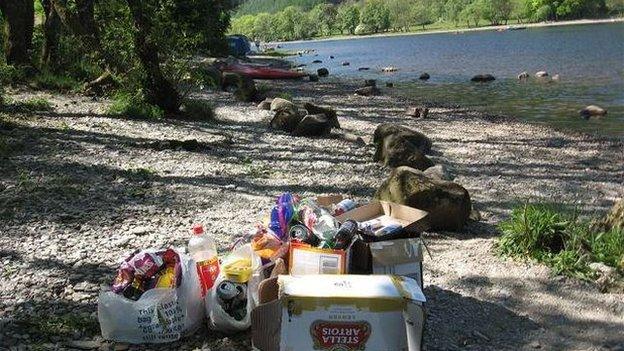
- Published6 October 2014
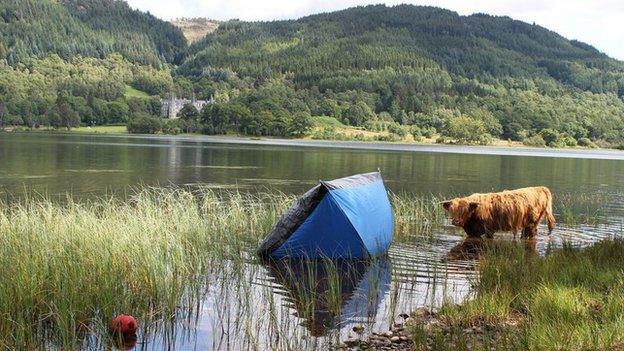
- Published2 October 2014
